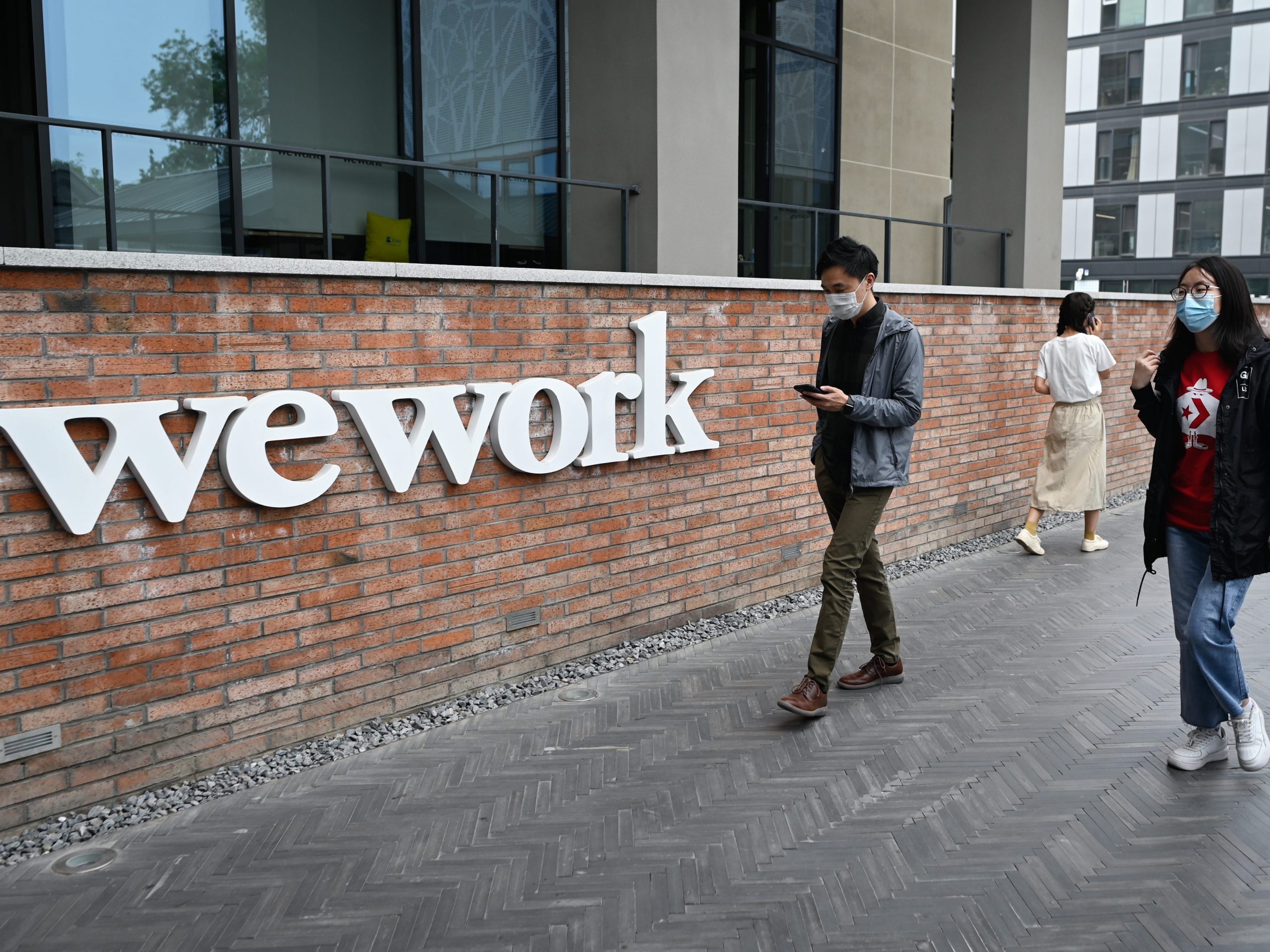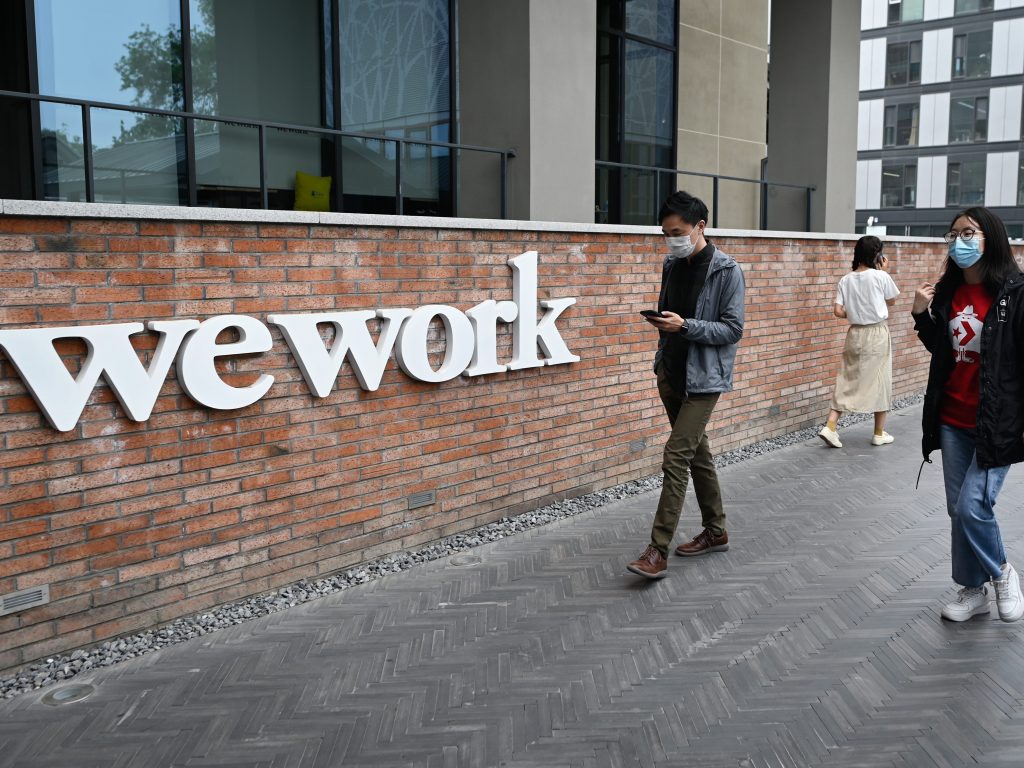
Wang Zhao/AFP via Getty Images
- WeWork's Sandeep Mathrani said that only the "least engaged" workers want to stay at home.
- It's inspired taunting from Uber's Dara Khosrowshahi and Box's Aaron Levie.
- As a commercial real estate firm, WeWork has a vested interest in workers returning to the office.
- See more stories on Insider's business page.
Tech CEOs are piling on online following the WeWork chief exec's assertion that only the "least engaged" employees want to keep working from home.
During The Wall Street Journal's Future of Everything festival on Wednesday, Sandeep Mathrani, who took the helm of WeWork in 2020, discussed the future of the office, saying that he's seeing employees who want to work at the office a few days every week and work remotely on other days.
But he added that the number of days workers want to stay at home is directly correlated to how engaged they are with their work.
"It's also pretty obvious that those who are overly engaged with the company want to go to the office two-thirds of the time at least. Those who are least engaged are very comfortable working from home," Mathrani said.
Since the interview, Mathrani's fellow CEOs haven't hesitated to point out that, as the the CEO of a commercial real estate company, he has a vested interest in employees returning to the office.
Aaron Levie, CEO of cloud content management firm Box, pointed out the absurdity of viewing your most engaged employees as the ones who use your product the most.
-Aaron Levie (@levie) May 13, 2021
Dara Khosrowshahi, the CEO of Uber, chimed in with his own version.
-dara khosrowshahi (@dkhos) May 13, 2021
As a coworking startup, WeWork relies on people returning to the office to boost its business. Though the company's current occupancy rate is below 50%, WeWork recently told investors it expects occupancy to soar to 75% by the fourth quarter of this year.
Marcelo Claure - WeWork's executive chairman and the CEO of WeWork's largest financial backer, SoftBank Group International - told Insider in a statement earlier this year that "WeWork is incredibly well positioned to springboard into a future" thanks to its technology and "a new appreciation of the value of flexible workspace."

